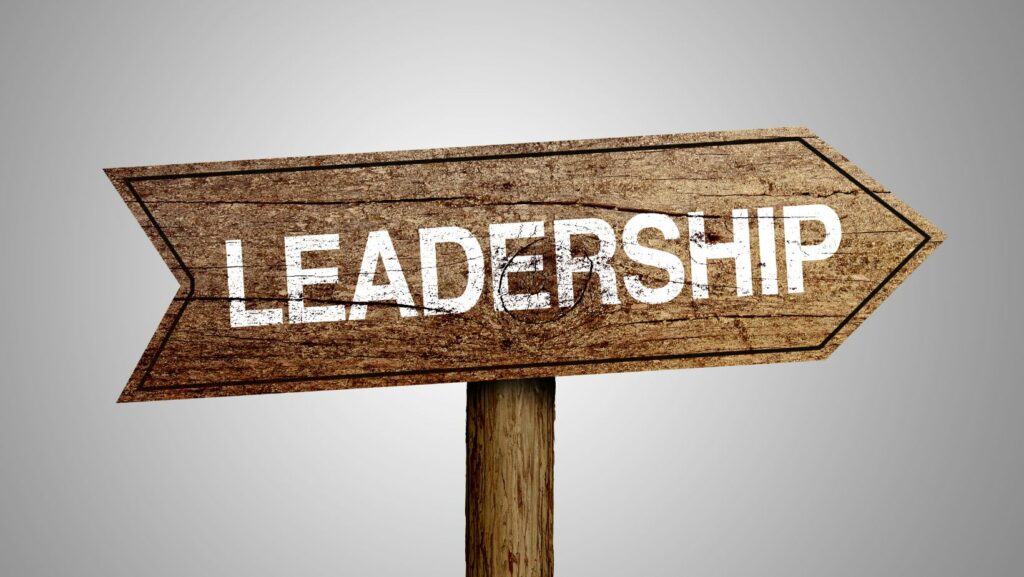In today’s fast-paced world, effective leadership is more crucial than ever. Masters of organizational leadership possess the unique ability to inspire teams, drive innovation, and foster a culture of collaboration. I’ve always been fascinated by how these leaders navigate challenges and create environments where everyone can thrive.
Understanding the principles and strategies that define successful organizational leadership can transform not just a company but entire industries. As I dive into the characteristics and practices of these masters, I’ll uncover what sets them apart and how their approaches can be applied to any organization. Join me as we explore the art and science behind exceptional leadership and discover how it shapes the future of work.
Key Takeaways
- Effective Leadership Is Essential: Masters of organizational leadership are pivotal in today’s dynamic work environment, inspiring teams to innovate and cooperate effectively.
- Key Principles of Leadership: Successful leaders exhibit emotional intelligence, adaptability, and decisive action, enabling them to navigate challenges and motivate their teams.
- Ethical Leadership Matters: By modeling integrity and transparency, ethical leaders foster trust and engagement, positively impacting organizational culture and employee commitment.
- Challenges Faced by Leaders: Leaders must address change management, employee engagement, conflict resolution, and resource optimization to maintain organizational effectiveness.
- Real-World Examples of Leadership: Case studies from companies like Apple, Starbucks, and Microsoft illustrate the impact of visionary, ethical, and adaptive leadership on business success and innovation.
- Continuous Improvement Culture: Emphasizing ongoing development and open communication helps cultivate a positive environment that drives productivity and employee satisfaction.
Masters Of Organizational Leadership
 Masters of organizational leadership influence their organizations through strategic vision and effective management. These leaders understand the complexities of organizational dynamics and focus on aligning goals with an organization’s mission.
Masters of organizational leadership influence their organizations through strategic vision and effective management. These leaders understand the complexities of organizational dynamics and focus on aligning goals with an organization’s mission.
They cultivate environments that encourage innovation and collaboration. By fostering trust and open communication, they enable teams to function effectively and adapt to changing circumstances.
Key principles of masters of organizational leadership include emotional intelligence, adaptability, and decisive action. Emotional intelligence allows them to navigate interpersonal relationships and motivate team members. Adaptability helps them respond to industry shifts and emerging challenges. Decisive action ensures timely decision-making, crucial in fast-paced business environments.
Successful leaders often implement various strategies to enhance team performance and engagement. Training programs, mentorship initiatives, and regular feedback processes play critical roles. These strategies empower employees and contribute to a culture of continuous improvement.
Their impact extends beyond immediate teams, influencing organizational culture and performance metrics. Organizations led by these individuals typically exhibit higher employee satisfaction, reduced turnover rates, and increased productivity. The ability to inspire and guide others signifies the true essence of masters of organizational leadership.
Key Skills For Organizational Leaders
Organizational leaders require specific skills to effectively guide their teams and achieve strategic goals. Critical competencies include communication skills and strategic thinking.
Communication Skills
Communication skills encompass clear expression and active listening. Leaders convey expectations and objectives to teams, fostering an understanding of shared goals. They engage in open dialogues, encouraging input and feedback, which enhances team collaboration. Effective communication also involves adapting messages for diverse audiences, ensuring clarity across varying levels of the organization. Regular updates and transparent information sharing build trust and alignment, essential for organizational success.
Strategic Thinking
Strategic thinking involves analyzing complex situations and anticipating future challenges. Leaders assess market trends, identify organizational strengths, and recognize areas for improvement. They formulate actionable plans that align with the organization’s mission and vision. Strategic thinkers prioritize tasks, allocate resources efficiently, and anticipate potential risks. By fostering a culture that embraces innovation and adaptability, leaders enhance their organizations’ resilience, ensuring sustained growth and competitiveness.
Importance Of Ethical Leadership
Ethical leadership plays a crucial role in shaping efficient organizations. As I observe masters of organizational leadership, their ethical practices foster trust, engagement, and commitment within teams.
Building Trust Within Teams
Building trust within teams begins with leaders demonstrating integrity and transparency. Leaders set the tone by modeling ethical behavior in every interaction. Consistent ethical decision-making fosters an environment where team members feel safe to express their ideas. When leaders prioritize honesty, it results in open communication and strengthens relationships, enhancing collaboration among team members.
Additionally, leaders encourage accountability by holding themselves and their teams responsible for their actions. Leaders who acknowledge mistakes and learn from them cultivate a culture of trust that empowers teams to take risks and innovate. This trust enhances morale and drives overall performance, resulting in higher employee satisfaction and retention rates.
Impact On Organizational Culture
 Ethical leadership significantly impacts organizational culture by promoting respect and inclusivity. Leaders who embrace ethical standards inspire their teams to uphold similar values, creating a shared sense of purpose. This alignment fosters a positive working environment, where diversity of thought flourishes.
Ethical leadership significantly impacts organizational culture by promoting respect and inclusivity. Leaders who embrace ethical standards inspire their teams to uphold similar values, creating a shared sense of purpose. This alignment fosters a positive working environment, where diversity of thought flourishes.
Moreover, ethical leadership encourages a culture of feedback and continuous improvement. When leaders value employee voices and contributions, it cultivates an engaged workforce that is more likely to commit to organizational goals. This commitment translates into enhanced productivity and performance metrics, creating a sustainable competitive advantage for the organization.
Ultimately, the influence of ethical leadership extends beyond immediate results, shaping a resilient and adaptive organizational culture that stands the test of time.
Challenges Faced By Organizational Leaders
Organizational leaders encounter various challenges that test their skills and resilience. Key challenges include:
- Change Management: Leaders face difficulties in effectively managing change. Rapid technological advancements and shifting market conditions require constant adaptation. Leaders must communicate the vision and rationale for changes clearly to alleviate resistance and ensure successful transitions.
- Employee Engagement: Maintaining high levels of employee engagement remains a challenge. Disengaged employees can lead to reduced productivity and higher turnover rates. Leaders need to foster a culture that promotes recognition, provides development opportunities, and encourages open communication.
- Conflict Resolution: Conflicts within teams can disrupt collaboration and hinder progress. Leaders must navigate differing opinions and personalities, employing mediation techniques to address and resolve disputes while maintaining team cohesion.
- Decision-Making: Organizational leaders often face complex decision-making scenarios. Balancing stakeholder interests with organizational goals requires careful consideration. Leaders must gather relevant data, analyze insights, and make informed choices promptly to prevent stagnation.
- Resource Management: Optimizing resource allocation presents another challenge. Limited budgets and staffing resources can impact project timelines and outcomes. Leaders must prioritize tasks and delegate effectively to maximize the team’s potential.
- Diversity and Inclusion: Creating an inclusive environment poses challenges for many leaders. Embracing diversity enhances innovation but may result in conflicting viewpoints. Leaders should implement training and foster dialogue to promote understanding and collaboration among diverse team members.
- External Pressures: Leaders often face external pressures from competitors and market trends. Staying ahead of the competition requires constant monitoring and agile strategy adjustments. Leaders must anticipate shifts and pivot quickly to maintain their organization’s relevance.
Navigating these challenges demands strong leadership skills, persistence, and a commitment to continuous improvement. Effective leaders recognize these obstacles as opportunities for growth and development within their organizations.
Case Studies Of Successful Leadership
Apple Inc.
Apple’s leadership under Steve Jobs illustrates the power of visionary leadership. Jobs focused on innovation and design excellence, creating a culture that encouraged risk-taking and creativity. His emphasis on product development transformed Apple into a market leader, with products like the iPhone and iPad redefining consumer technology. The company’s commitment to quality and user experience stems from Jobs’s strategic vision and ability to inspire his team.
Starbucks
Howard Schultz’s leadership at Starbucks shows how ethical practices influence organizational culture. Schultz prioritized employee engagement through competitive wages and benefits, fostering loyalty among staff. His focus on creating a welcoming environment transformed Starbucks into a global coffeehouse chain. Schultz’s commitment to social responsibility strengthened brand loyalty and enhanced customer experiences.
Walmart
Doug McMillon’s approach at Walmart highlights adaptive leadership in a changing retail landscape. McMillon embraced technology and e-commerce to keep pace with industry shifts. His initiatives, such as investing in automation and digital tools, streamlined operations and improved efficiency. McMillon’s strategic mindset enabled Walmart to maintain its competitive edge while focusing on sustainability initiatives that resonate with customers.
Unilever
Paul Polman’s tenure as CEO at Unilever demonstrates the significance of sustainable leadership practices. Polman integrated sustainability into the company’s core business strategy, focusing on long-term goals over short-term profits. His efforts led to reduced environmental impact and increased brand equity. Polman’s leadership style emphasizes collaboration, aligning diverse teams with a shared vision for global responsibility.
Tesla
Elon Musk exemplifies transformational leadership at Tesla, driving innovation in the automotive industry. Musk fosters a culture of experimentation, encouraging teams to push boundaries in electric vehicle technology. His vision for sustainable energy solutions inspires employees and engages consumers. Musk’s decisive actions and bold strategies help Tesla maintain a leadership position in the electric vehicle market.
Microsoft
Satya Nadella’s approach at Microsoft showcases effective change management. Nadella shifted the company culture from a competitive atmosphere to one that values collaboration and inclusivity. He introduced initiatives emphasizing growth mindset, encouraging employees to learn and adapt. Under his leadership, Microsoft experienced a resurgence in innovation and market relevance, resulting in significant growth in cloud services and overall company valuation.
Shaping The Future of Work
Masters of organizational leadership shape the future of work through their unique blend of vision and ethical practices. Their ability to inspire teams and foster innovation creates environments where collaboration thrives. I’ve seen firsthand how effective leaders navigate challenges with emotional intelligence and strategic thinking.
By prioritizing ethical standards and inclusivity, they not only enhance team performance but also cultivate a culture of trust and respect. As I reflect on the principles and strategies discussed, it’s clear that these leaders don’t just manage—they transform organizations. Embracing their methods can lead to remarkable growth and a sustainable competitive edge in any industry.

